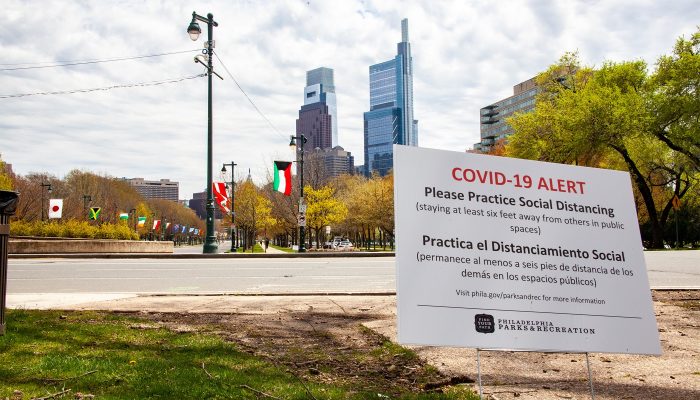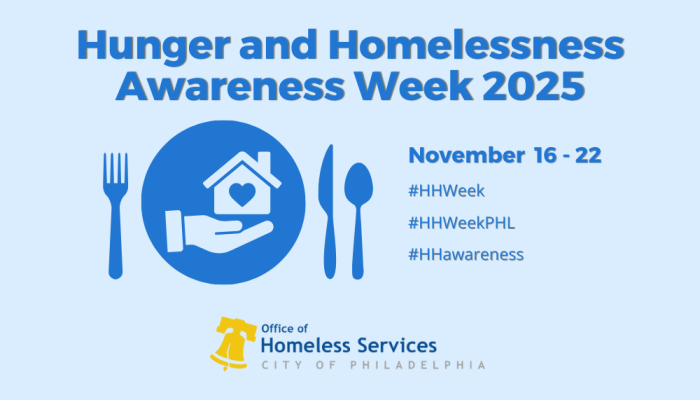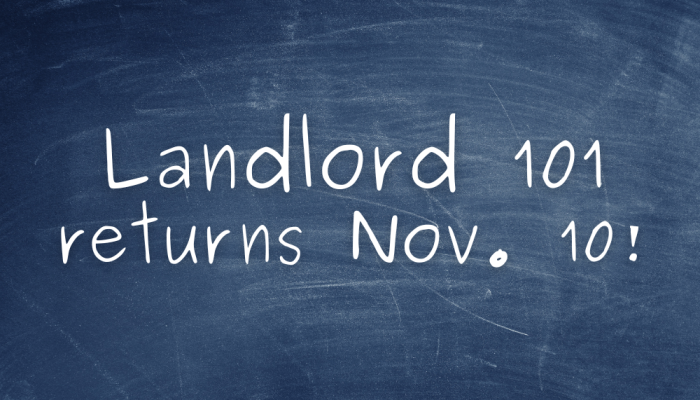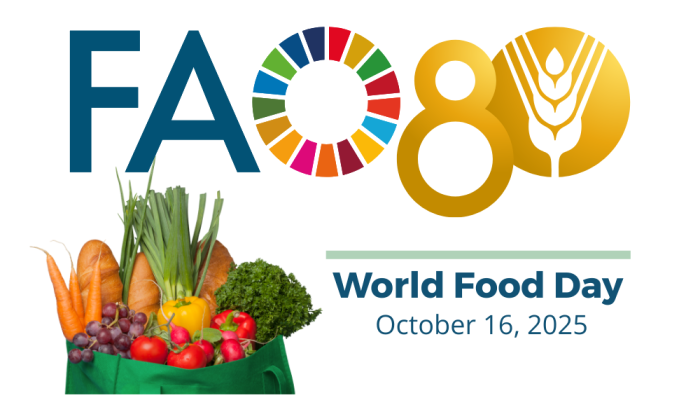Homeless services in Philadelphia are essential. As a result, shelter, outreach, intake, and other services have continued uninterrupted during the COVID-19 coronavirus outbreak.
It is anything but business as usual across Philadelphia’s homeless services system, however.
Societal problems, like the current outbreak, typically hit people experiencing homelessness, and those living in poverty overall, much harder, putting already vulnerable populations under extreme conditions requiring a proportionate response from public services.
Since Mayor Jim Kenney signed Executive Order 3-20 declaring an emergency on March 13, the Office of Homeless Services (OHS) has been working with its network of over 60 nonprofit service providers to think creatively and deliver services effectively.
This nimble, mission-focused operation consistently centers the unique needs of all Philadelphians experiencing homelessness right now, whether they are in a shelter or unsheltered and on the street, by connecting these needs and priorities with available resources and advocating for additional support.
There are three priorities guiding the OHS COVID-19 emergency response:
-
Homeless services cannot go offline, so OHS must do everything in its power to keep operations going.
-
Safety, saving lives, is the top priority for the homeless services system and the City of Philadelphia overall.
-
The City must ensure people can access meals; Philadelphians experiencing homelessness, especially those who are unsheltered, are at high risk of suffering from hunger as the city is empty and many regular meal sites are offline.
You can learn more specific details about how COVID-19 has affected operations, including which services the City added, below organized by the target population and program type.
Services for people experiencing homelessness who are in shelter
This list is not exhaustive and includes just some of what is going on right now.
Intake
- Intake continues uninterrupted, but social workers interview people over the phone rather than in-person, with some workers on-site and others working remotely; the City also limits numbers in waiting areas to keep adequate social distancing.
- Nurses provide brief, respectful, short screenings for COVID-19 for visitors at OHS access points who are potentially entering the shelter system. Those who have symptoms do not enter shelter but instead go to medical care.
Shelter
- Shelters are open and have been operating since the start of the outbreak, with a special focus on COVID-19 prevention and response.
- OHS anticipated the stress of the outbreak and preemptively extended its Winter Initiative to at least June 30, keeping hundreds of seasonal beds online to boost capacity.
- OHS conducts weekly informational and training calls for homeless service providers addressing the unique operational challenges needed to safely shelter people during the emergency.
Quarantine
- OHS works across City government to ensure people experiencing homelessness currently living in shelters or other places not suitable for quarantine can do so in an alternate site, working with the Department of Public Health on individual concerns and cases.
- OHS has staff on-site as part of critical operations in the Emergency Operations Center, ensuring the needs of Philadelphians experiencing homelessness are always part of the planning process.
- OHS is currently reviewing how those experiencing homelessness who are elderly, have been chronically homeless, have serious behavioral health issues, or live with other special conditions could be served by more customized service sites.
Services for people experiencing homelessness who are unsheltered or living on the street
Since staying in your home is the primary COVID-19 prevention tool, it is understandable that Philadelphians living and working from home right now wonder what their neighbors without homes are doing in order to #StayHomePHL.
Likewise, without commuters, workers, and residents filling Philadelphia’s streets, the presence of people who are unsheltered, and the lack of adequate affordable housing, has become more apparent, forcing everyone to think about the choices society makes.
Homeless service providers and the City have been working hard at safely reaching Philadelphia’s unsheltered population, many of whom live with serious mental illness or substance use disorder.
Homeless outreach
- Outreach has continued uninterrupted during the emergency, reachable 24/7 by calling 215-232-1984.
- Homeless outreach teams from the Department of Behavioral Health and Intellectual disAbility Services have pulled double duty, doing their normal work of outreach together with now also distributing special COVID-19 information, hygiene kits, and food.
- OHS and outreach together retrofitted vans with protective plexiglass and alternative seating arrangements to ensure that transport is as safe as possible.
Day programs and hygiene facilities
- Center City’s Hub of Hope continues to operate on a modified schedule and reduce capacity with new, emergency outdoor access to medical care, including COVID-19 care and information along with meals.
- Kensington’s Prevention Point reduced daytime hours due to logistical needs and is in the process of moving medical care outdoors to continue to provide services while observing adequate social distance.
- The City offers established eight hand washing stations and three mobile bathroom facilities to ensure that people experiencing homelessness have ready access to some of the tools necessary to fight COVID-19, deploying them using data from outreach and other sources to maximize effectiveness.
- A City working group meets regularly several times per week focusing on the needs of the unsheltered this population and the providers serving them to think through problems, solutions, share information, and get additional guidance from PDPH as new needs arise.
- OHS is currently developing a 24-hour drop-in site in Kensington to help reduce the number of people on the street.
Services for people who are in or moving onto long-term housing
Providing homes ends homelessness, and while supply does not currently meet demand, the supply that does exist is powerful. Permanent Supportive Housing, an evidence-based practice shown to prevent a return to homelessness about 90 percent of the time, is one long-term housing program that saves taxpayer dollars.
The National Alliance to End Homelessness estimates that one chronically homeless person living on the street costs $37,500 every year in estimated police, EMS, hospitalization, and other costs. In contrast, one PSH unit subsidy costs about $12,800 per year.
During the outbreak, OHS staff has worked with providers to accelerate people moving on from shelter into homes through programs like PSH.
- OHS has continued performing home inspections during the emergency so people can move-in as soon as possible.
- OHS sought and received authorization from the U.S. Department of Housing and Urban Development (HUD) to conduct inspections virtually if necessary.
- OHS designated staff to specifically handle certain requests to ensure that during the emergency people are paying rents that are fair based upon their income and program guidelines.
- OHS has told providers to reduce barriers wherever possible to prioritize move-in; this includes reducing documentation temporarily as HUD has authorized systems to provide documentation waivers to expedite move-in in some cases.
Services for people experiencing homelessness who are hungry
The City embarked on a meal and food deployment plan as soon as the outbreak started, with a special focus on students not receiving meals because of school closures.
Simultaneously and in collaboration with that effort, OHS has worked with private, faith-based, and nonprofit community meal providers across the city to ensure that, as many other providers went offline due to the virus, alternatives existed for Philadelphia’s most vulnerable.
- Development of a new temporary, emergency meal site listing updated constantly so that people know where to go to eat.
- Making more meals available in areas where there are many people living on the street.
- Creation of specialty fliers to give faith-based communities and others options on how to donate food, money, or other resources to providers offering meals.
- Not-for-profit, mission-driven organizations, philanthropy, and the City are forging new partnerships to address the urgent needs of Philadelphia’s unsheltered population.
- This includes new temporary, emergency meal sites providing medical or other programming in Center City and Kensington thanks to the leadership of Broad Street Ministry, Project HOME, and Prevention Point and the support of the City of Philadelphia and Muslims Serve.
- Support of grab-and-go meals and operations across Philadelphia through the OHS warehouse, including redeployment of staff to advance these operations.
It is important to note that the current crisis prompts the temporary, emergency creation of meals outdoors where there is adequate space for people to spread out, eat, and maintain adequate social distance. When the emergency is over and COVID-19 response ends, the City will continue to advocate for moving meals indoors to serve people food at tables with dignity.
A few services are temporarily suspended
Because of practical safety concerns or logistics, the City has had to temporarily suspend several homeless services.
These changes have disrupted the normal flow of food, care, and connection to housing services, and Philadelphians should find alternatives or contact Philly311 by dialing 3-1-1 within the city or OHS by emailing OHS@phila.gov for guidance.
- Same Day Pay programs employing 20-40 people daily are temporarily on hold; participants typically used the program both as an alternative to panhandling as well as an on-ramp to workforce development.
- OHS is not accepting homelessness and eviction prevention applications; right now, no legal eviction can take place in Philadelphia and the courts are closed, so those facing an illegal lockout or eviction should immediately dial 911 and request police.
- Offices in the Municipal Services Building are closed to the public. If you have to reach anyone at OHS, please stay home and email your OHS contact or OHS@phila.gov.




